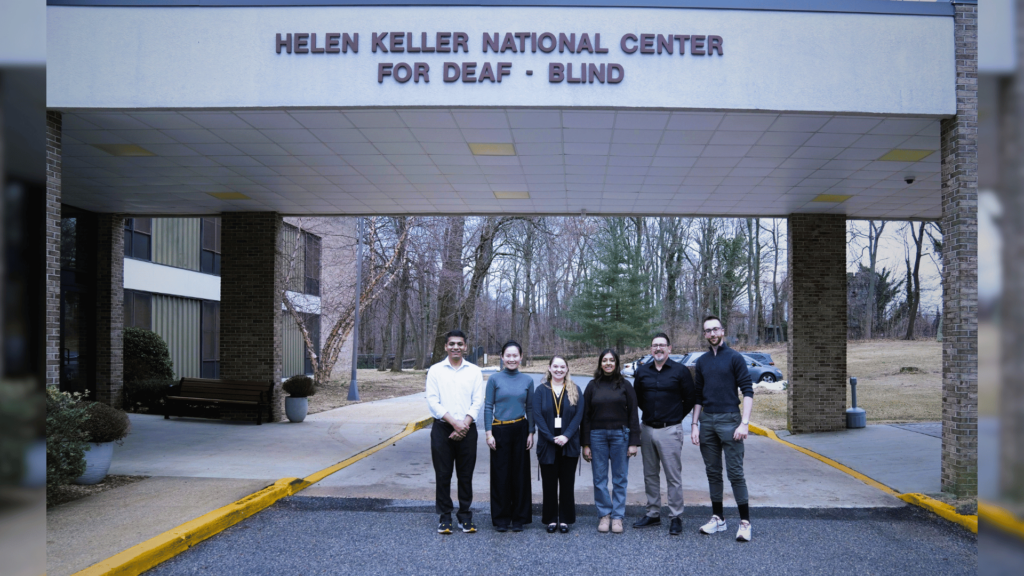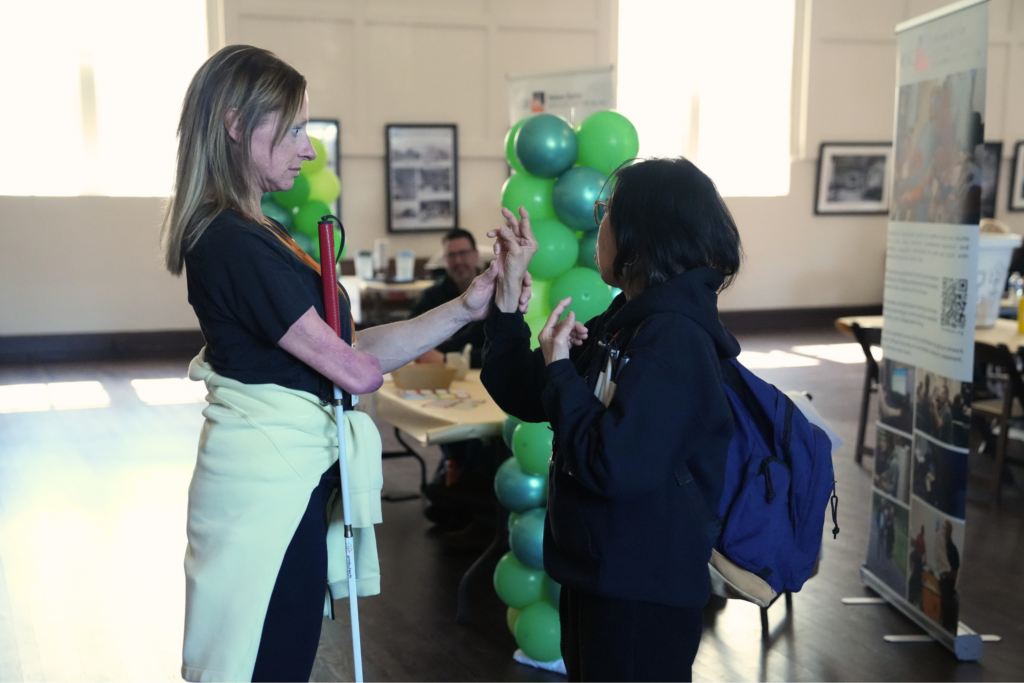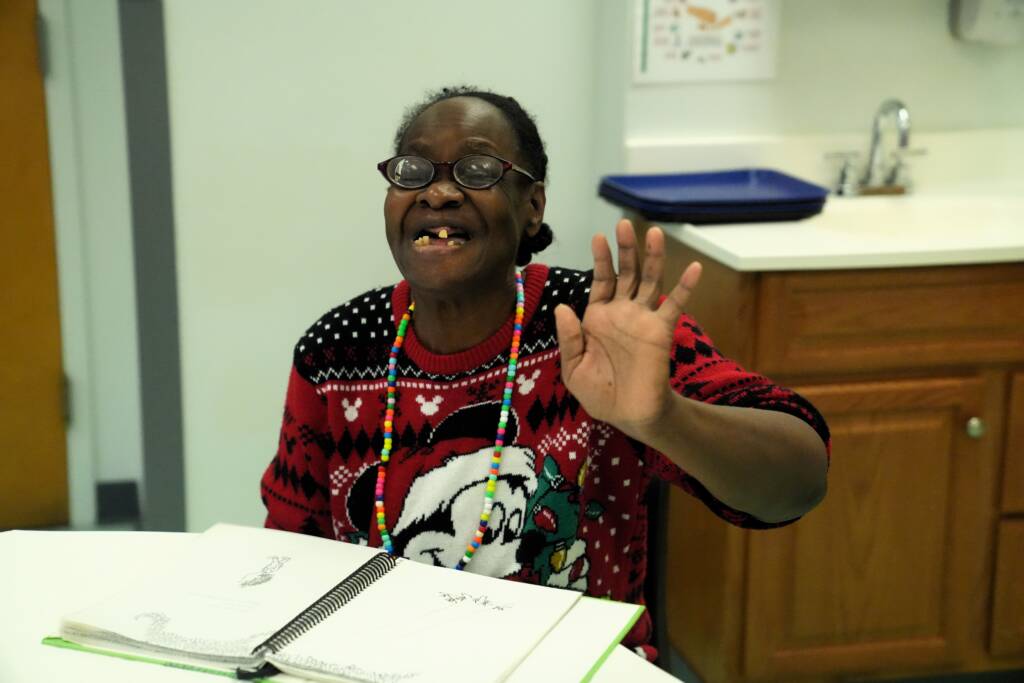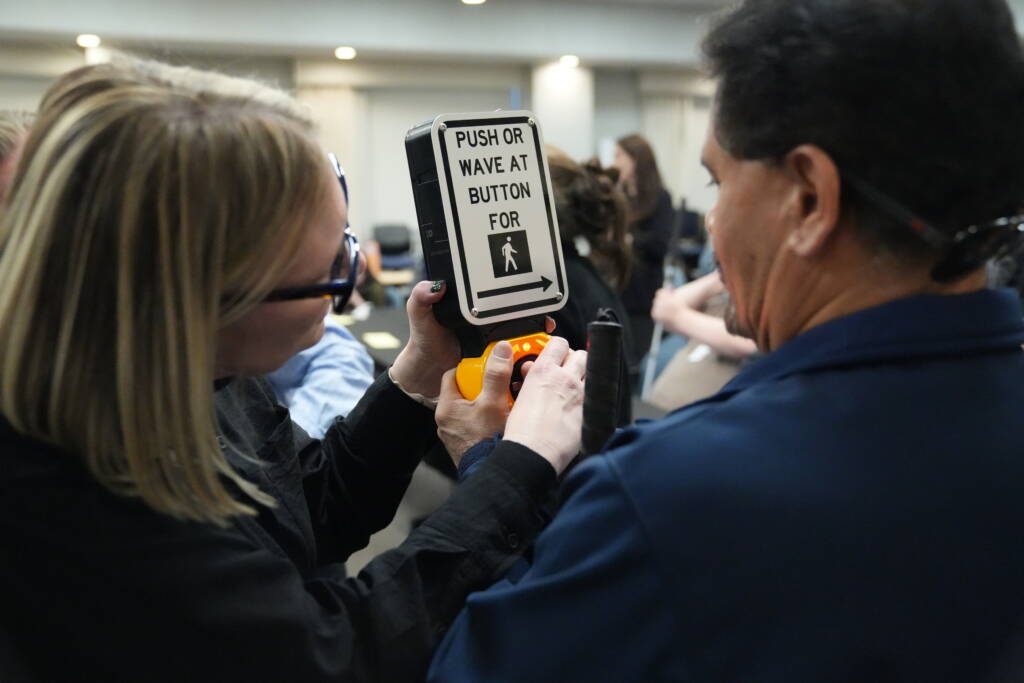Johns Hopkins University Researchers Partner with HKNC for Groundbreaking Study on Spatial Awareness
Johns Hopkins researchers visited HKNC to conduct groundbreaking spatial localization assessments with DeafBlind participants, exploring how combined sensory loss impacts navigation abilities.

In February, researchers from Johns Hopkins University visited the Helen Keller National Center (HKNC) campus for three days to conduct specialized spatial localization assessments with HKNC participants as part of an innovative research initiative.
The visit was a key component of their National Institute of Health (NIH)-funded study titled “Spatial Localization with Vision and Hearing Loss,” which investigates how combined hearing and vision loss impacts an individual’s ability to navigate their environment and locate objects and people—fundamental skills for independent living and community engagement.
This collaborative research aims to develop a comprehensive in-person assessment protocol that will benefit professionals working with individuals who are DeafBlind, including orientation and mobility specialists, audiologists, and other rehabilitation professionals. Such tools could significantly enhance how services are tailored to meet the unique needs of each individual.
During their three-day visit to our Sands Point campus, the Johns Hopkins team successfully assessed six HKNC participants who enthusiastically embraced the opportunity to contribute to research that could improve understanding of DeafBlind experiences. Each participant requested additional information about the study to share with family members and friends, highlighting the community’s commitment to advancing knowledge in this critical field.
The research team was impressed by the engagement and insights offered by HKNC participants, noting the value of their lived experiences to the study’s objectives. The visit proved so successful that the Johns Hopkins researchers have expressed interest in returning to assess additional HKNC participants, potentially expanding the study’s impact by increasing representation of profound DeafBlindness in their overall study sample.
This collaboration exemplifies HKNC’s dedication to advancing research that improves understanding of DeafBlind experiences and enhances service delivery through evidence-based approaches. By participating in cutting-edge research, HKNC continues its mission of creating pathways to independence for individuals who are DeafBlind.


